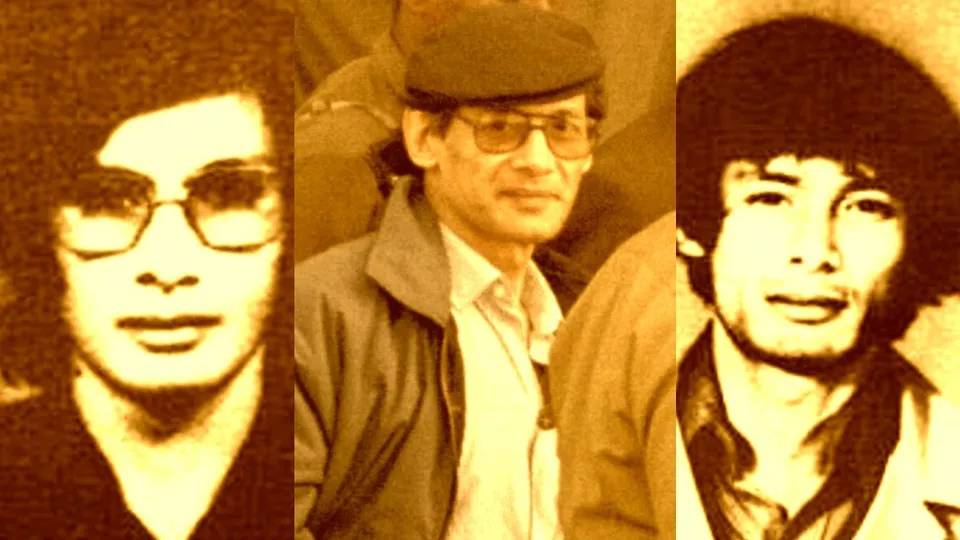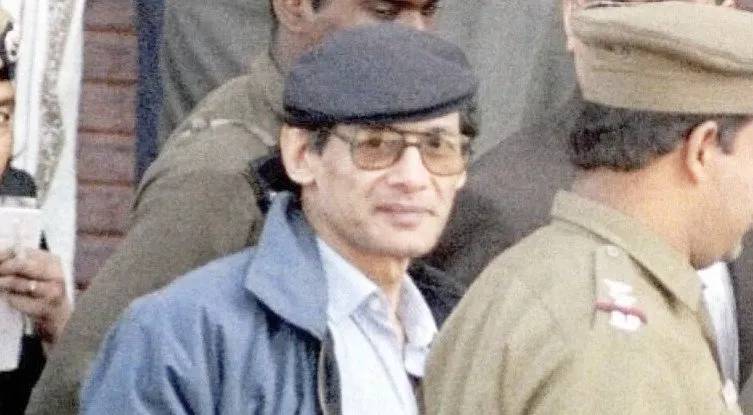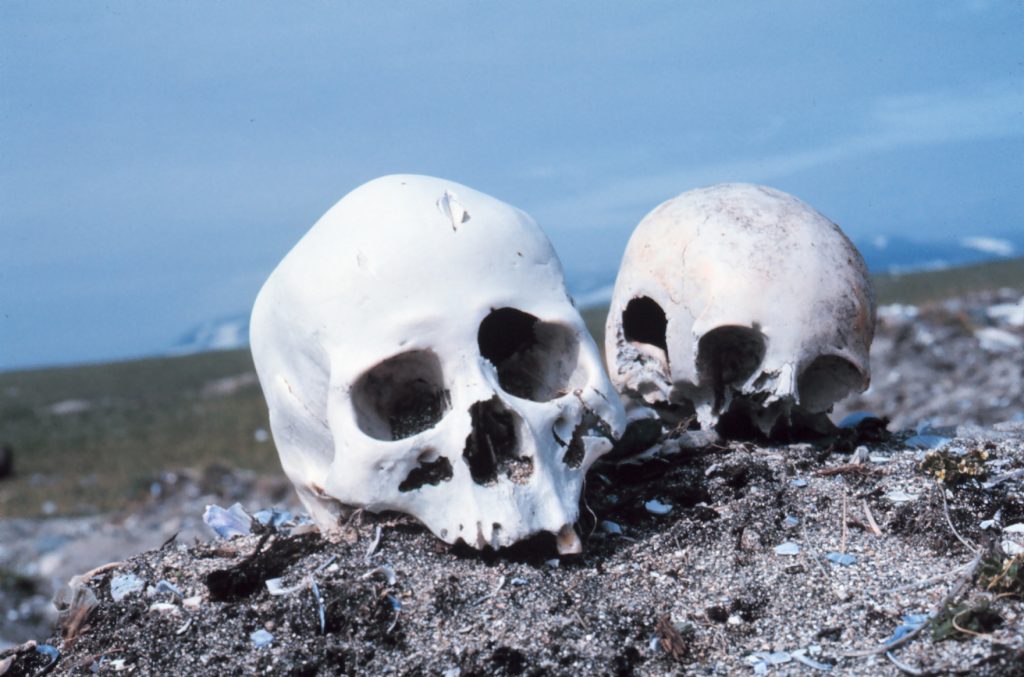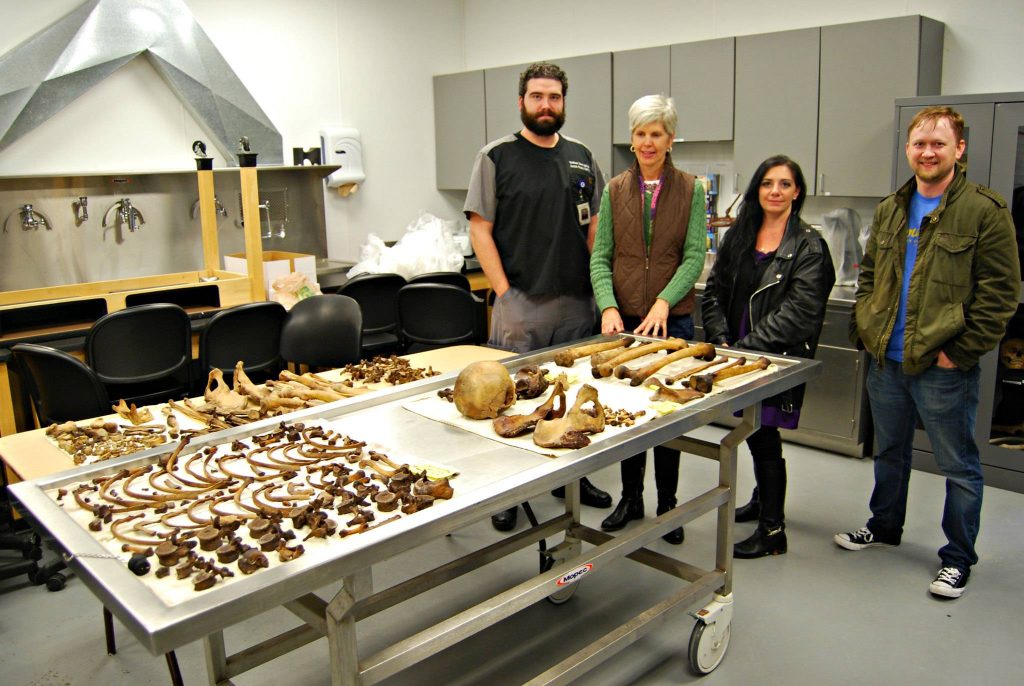It bugs the hell out of me why this has not been solved.

Serial killers generally kill because of three main reasons; pleasure, criminal enterprise, or psychological. Sobhraj falls under the category of criminal enterprise, which means they kill for either financial gain, drugs, gang-related killings, or organised crime.
Robbery murders, insurance scams, and welfare fraud are some of the ways that one might benefit financially from a murder.
Sobhraj was part of the 1970s and 1980s serial killer epidemic, where serial killing was at its peak. This was down to numerous factors including the after-effects of World War Two, attitudes towards women in the late 1960s and 1970s, the creation of highways which allowed killers to move around more freely, along with the fall-out of the Vietnam war, among many other reasons.
Sobhraj was born in Saigon in 1944 to a Vietnamese mother and Indian father. His international life began early, when his parents divorced shortly after his birth. He was adopted by his mother’s new boyfriend, a French Army lieutenant, and they travelled between South-East Asia and France on many occasions.
He then became a French national because of the adoption. Due to his scattered upbringing and neglect, he became a petty thief and small-time criminal before his first arrest in 1963, when he was 19-years-old.
While serving his first short jail sentence in Paris, he met one of France’s high society rich kids named Felix d’Escogne, who was working as a prison volunteer. Sobhraj moved in with Felix when he was released a few months later. He then managed to flitter between high society and the criminal world with ease. Though they called him the serpent, chameleon would have been more appropriate.
In the late 1960s, Sobhraj was arrested for driving a stolen vehicle, and sentenced to another eight months in jail before he married a high-society French girl name Chantal Compagnon. In 1970, he left France before he could be arrested on another charge, and ended up in Mumbai, India.
He began a car theft and smuggling operation and used the profits for his new gambling addiction. In 1973 he was arrested and held on an armed robbery charge in Delhi, but with the help of his new wife, he managed to escape. Despite a recapture, he was bailed out and then eloped to Kabul, Afghanistan.
In Kabul, he was arrested again for robbing tourists on the Hippie Trail and again managed to escape. His wife and newly born child left him and returned to Paris. From 1973 to 1975 with help from his half-brother, they travelled through many countries across Europe and the Middle East, robbing tourists and involving themselves in criminal activity.
They were arrested in Athens, Greece, where Sobhraj managed to escape yet again. His half-brother was sentenced to 18-years in prison.
All of the above was before he even killed his first victim.

Charles Sobhraj: Serial Killer
The first murder victim was a Seattle-based female who threatened to expose Sobhraj’s criminal activities in 1975. She was found drowned in the surf of a tidal pool in the Gulf of Thailand, wearing only her bikini. In the same year, Sobhraj burned to death a young man named Vitali Hakim, near the Pattaya resort, and also strangled to death a young couple who he feared would expose his criminal activities.
Again in the same year, he killed Hakim’s girlfriend who had travelled to Thailand to look for him. She was found face down in the surf, wearing a similar style-bikini to the first victim.
This is how he got the moniker of the Bikini Killer. At the time, Sobhraj had recruited an Indian helper named Ajay Chowdhary, who was known to have assisted Sobhraj in his crimes. Shockingly, no trace of Chowdhary has ever been found but it is suspected Sobhraj may have killed him too.
Sobhraj had a charming but manipulative personality and people were drawn to him, in the same way that Charles Manson was able to recruit followers. Also in the same way that the likes of Ted Bundy and Rodney Alcala were able to charm and manipulate everyone around them.
He would gain the trust of foreign backpackers, mostly from Europe and the United States, then poison them before nurturing them back to health. He did this to gain control over them and ensure their trust in him, as the victims didn’t know they were being poisoned.
In December of 1975, he eloped to Nepal and killed two more backpackers. He used their passports to head back to Thailand. This was an era where travel between countries was a lot easier and restrictions were minimal, especially in South East Asia and the Middle East.
Sobhraj was most likely the reason our parents told us never to go backpacking to South East Asia, or travel to countries that were not English-speaking. Around the same time, stories of murdered backpackers and missing travellers were appearing in newspapers across the UK, America, and Europe. Though Sobhraj wasn’t responsible for all of them, it did paint a dire picture of South East Asia specifically.
His last victims were a group of four French students travelling New Delhi, he tricked them into becoming a tour guide for them. As they were being poisoned, three of them realised what was happening and managed to overpower Sobhraj before the police arrived to arrest him.

Charles Sobhraj: Prison Years
He was sentenced to twelve years in an Indian prison but the story doesn’t end there. Ten years later, he realised that if he was to be released, then an outstanding Thai warrant would ensure his extradition to the country where the death penalty would have been handed out.
At the time, Thai warrants had an expiration time of 20 years which meant Sobhraj needed to remain in prison for another ten years instead of being released to Thai authorities.
Inside the Indian prison, Sobhraj was living a life of luxury, having learned quickly how to bribe the guards and other prisoners. In 1986, he put on a lavish party for the guards but secretly poisoned them and then calmly walked out the jail. He travelled South to Goa and patiently waited his recapture. When he was rearrested, he was given an additional ten years on his sentence.
In February 1997, the then 52-year-old Sobhraj was released and allowed to return to France. In the six years that followed, he was paid to be interviewed by researchers and movie producers. One investigator claimed that Sobhraj had received $15million USD for the movie rights to his story.
This is something that wouldn’t be allowed to happen nowadays, at least in the UK and United States. In 1978 in the U.S., the Son of Sam Law was passed after David Berkowitz came close to making money off his story.
This law went some way to setting the standard for similar laws throughout the United States and some other countries. Dennis Nilsen was allowed to publish his autobiography but shortly after, the British government banned it and implemented a similar law.
In 2003, Sobhraj was spotted in Kathmandu, Nepal, and was reported to Nepalese authorities as there was an outstanding warrant in the country without the time limit that Thailand had. He was arrested and sentenced to life a year later. Since then, he’s married a Nepalese woman, Nihita Biswas, while in jail in 2008.
Nihita went on to be part of the Indian version of Big Brother in 2011. She remains married to him and claims her husband has not killed anyone or been charged with murder. Except, he did kill and he has been charged – and convicted.
In 2010, he was sentenced to life in a new trial for the murder of Canadian backpacker Connie Jo Bronzich. In 2014, he was sentenced to life again for the murder of another Canadian traveller. Despite being seriously ill in recent years, he remains alive in his prison cell, in Nepal.
Charles Sobhraj: Motives
Criminal enterprise. Sobhraj killed to protect his crimes from being exposed and those who stood in his way. He never killed out of sexual pleasure or to sate a desire for death. He killed for passports and papers that allowed him to move freely between multiple countries. Yet, he is still a serial killer. Criminal enterprise is as dangerous as sexual or psychological reasons.
Sobhraj later stated in an interview that he killed purely out of business interest and saw it as a job to give him access to the means that allowed his criminal activities to continue.
It has been confirmed that in his formative years, he suffered neglect at the hands of his mother’s French boyfriend and the constant moving between different countries had a negative effect on his psychological growth.
Sobhraj fell into the trap of wanting to live a high society life but doing so in an illegal fashion. He had been manipulating people since he was a youngster by getting other children to steal for him. His mother also blamed him for her separation from his father, which tied into the abandonment he would have felt from the boyfriend.
The feeling of constantly being on the run and not having a home to settle into can see someone prefer to live in the criminal world with little respect for morals or the lives of others.
He was able to exploit the weaknesses of people all around him. According to those who knew him, he had a small conscience, if any at all, and lived on impulses and calculated aggression.
Thoughts on Charles Sobhraj
Had Sobhraj been convicted in Thailand for the crimes he committed then he would have been executed long before now. Let’s not make the mistake of thinking he has ever been someone’s friend.
He’s used people for his own gain, all of his life, and it doesn’t change with age. Some people refer to him as a serial killer celebrity which is absurd, you won’t be seeing Sobhraj on the likes of I’m A Celebrity, Get Me Out Of Here, any time soon. That would be a whole different kind of show.
At what point do we stop serial killers releasing detailed information and accounts of their crimes? Confessions and interviews with killers are mostly readily available after conviction so the information is already there for easy consumption.
On the one hand, people have a macabre fascination with all things relating to serial killers. On the other hand, the public don’t really want to see them get rich off the back of their crimes.
It’s a bizarre paradox where both sides are hungry but we are able to sate our hunger in the same way serial killers sate theirs. Fame then, surely is inevitable, as we strive to know more about those who commit the worse type of crimes.
Serial killers are not criminal masterminds, they are people of circumstance and opportunity, moulded through nurture, not nature.
Sobhraj should not be held in high esteem but his story should be told, so that we can understand why and indeed how those like him do the things they do.
- What Happens to Cold Cases? The Intricacies and Unsolved Mysteries Explained

- 13 Facts You Need to Know About Levi Bellfield: The Bus Stop Stalker

- How Has Pathology Evolved Over Time? (History of True Crime)

- Trio Convicted of June 2022 Westminster Murder of Adnan Saleh

- How Did Forensic Science Evolve Through History? (History of True Crime)

I feel like there should be more killers who use the internet especially in today's world.
Thanks for this. Anymore podcast lists coming anytime soon??
Not just females.
[…] Not So Heavenly Creatures: The case of two teenage girls who fell in love, created their own religion, entered…
There's a lot more the Italian authorities are not releasing over this case. Makes you wonder the extent of the…

 T
T
What Happens to Cold Cases? The Intricacies and Unsolved Mysteries Explained

 T
T
13 Facts You Need to Know About Levi Bellfield: The Bus Stop Stalker

 T
T
How Has Pathology Evolved Over Time? (History of True Crime)

 T
T


